Affiliated Postdoctoral Fellows & Visiting Scholars
The Center welcomes the following post-doctoral and visiting scholars from other programs as affiliates of the CSGS. Students should view the schedule for more information on their courses crosslisted with GNSE and those they may teach in the Core. Postdoctoral fellows are also eligible to advise B.A. and M.A. theses.
Post-doctoral scholars are listed alphabetically by school/division - Divinity, Humanities, and Social Sciences.
Divinity School
Olivia Bustion 
she/they
Teaching Fellow 2023-2025
Ph.D., Theology, University of Chicago
obustion@uchicago.edu
As a constructive theologian, I develop new theological models in conversation with feminist, queer, and disability theories to reveal what prior models obscure and to address contemporary issues of wider social concern. My current book project draws on historical discourses about the Spirit to rethink agency and personhood as emergent features of friendships rather than aptitudes of individuals. This book is the first stage of a larger research agenda that asks how systematic theology—despite its reputation as rigid and abstract—might be an accomplice in dismantling oppressive systems.
Humanities
Maggie Borowitz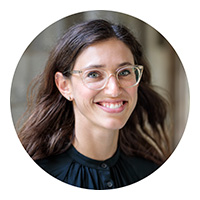
she/her/hers
Humanities Teaching Fellow 2022-2024
Ph.D., Art History, University of Chicago
mkbwitz@uchicago.edu
Maggie Borowitz studies modern and contemporary Latin American art. Her research focuses upon the relationship between art and politics in the late twentieth century, with special emphasis upon feminist practices in Mexico. She teaches courses that explore twentieth- and twenty-first-century art practices across the Americas and theories of feminism, gender, and sexuality. Her current book project explores the vibrant feminist art scene of 1970s and 80s Mexico City, principally through the work of the artist Magali Lara. Engaging with affect theory and feminist studies, the project investigates the political potency of expressions of female subjectivity. Her research has been supported by the Franke Institute for the Humanities, the Mellon Foundation, and a Fulbright-Hays DDRA Fellowship. She holds a PhD and an MA in art history from the University of Chicago, as well as a BA in anthropology, also from the University of Chicago.
Devon J Borowski 
he/him
Teaching Fellow in the Department of Music and in the College 2023–2025
Ph.D., Music History and Theory, University of Chicago
devonjborowski@uchicago.edu
Devon J Borowski received his PhD in Music History and Theory from the University of Chicago in 2023. His research interrogates the relationship between song, as a material practice and an object of knowledge, and constructions of race, gender, sexuality, and class. His current book project investigates eighteenth-century singing cultures and colonial discourses of voice, humanity, and history in late Georgian Britain, especially as they relate to the aesthetics of Camp, gothic horror, and Orientalism. Devon’s research has been supported a Predoctoral Fellowship for Excellence through Diversity at the University of Pennsylvania and an Alvin H. Johnson AMS 50 Dissertation Fellowship from the American Musicological Society. He was the LGBT Studies Research fellow at Yale University (2020) and a Stuart Tave Humanities Teaching fellow at the University of Chicago (2019). Other research interests include the castrato, early modern critical race studies, and queer singing communities.
Laura Colaneri 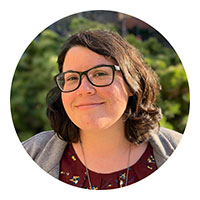
she/her/hers
Teaching Fellow in the Humanities 2023-2025
Ph.D., Romance Languages and Literatures, University of Chicago
lcolaneri@uchicago.edu
Laura Colaneri received her Ph.D. in Romance Languages and Literatures from the University of Chicago in 2023 and holds certificates from the University of Chicago in Latin American and Caribbean Studies and Gender and Sexuality Studies. Her research interests include Southern Cone literature; dictatorship, authoritarianism, and political violence; cultural studies; horror and Gothic literature and film; and women's literature and gender and sexuality studies. Her current book project, provisionally titled Las Fuerzas del Mal: Esoteric Imaginaries amid the Occult Necropolitics of Latin American State Terror, examines depictions of Latin American state-sponsored violence as akin to occult practices in twentieth and twenty-first century literature and film. She also examines contemporary women’s literature in Latin America, particularly the use of the horror and Gothic genres to depict political and personal violence against women and femicide.
Supurna Dasgupta 
she/her
Lindsay Teaching Fellow in the Humanities 2023-2025
Ph.D., South Asian Languages and Civilizations, University of Chicago
sdasgupta@uchicago.edu
I am a literary historian and cultural analyst of modern South Asia. In my work, I analyze how discourse and norms about gender and sexuality are co-created with cultural products in postcolonial regions. I am a comparatist and an area studies scholar by training, and currently, my archive spans texts in English, Bengali, Hindi, and Urdu. Through my teaching and research I suggest that humanistic engagement with gender and sexuality adds important nuance to social science discourses and enhances it with ambiguity, affect, excitement, and volatility.
Tanya Desai 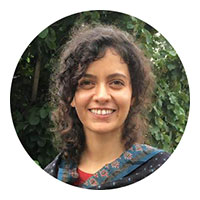
she/her
Teaching Fellow in the Humanities 2023-2025
Ph.D., Cinema and Media Studies, University of Chicago
tanyad@uchicago.edu
Tanya Desai received her PhD in Cinema and Media Studies from the University of Chicago in 2023. Previously, she completed her MA and MPhil in English Literature at the University of Delhi. She works on the philosophy of film, particularly on topics of language, time, narrative, and gender. Her current book project is on Bombay cinema of the 1950s, examining the convergence of film and poetry in its iconic songs and exploring the philosophical issues these songs raise about the relation between body and voice, between the self and the world, and between words and lives. Apart from Stanley Cavell’s ordinary language philosophy and South Asian cinema, her other research and teaching interests include gender and skepticism in literature and film, global classical cinema, aesthetic theory, film comedy, animal studies, moral philosophy, and psychoanalysis.
Sam Gray 
he/him
Humanities Teaching Fellow 2023-2024
Ph.D., Linguistics, University of Chicago
grays@uchicago.edu
Sam Gray received a PhD in Linguistics from the University of Chicago in 2023, with a dissertation focusing on the changing voices of transgender men and transmasculine people during the first year of hormone replacement therapy. His work spans the fields of phonetics, phonology, and sociolinguistics, focusing particularly on how phonetic features vary between social groups, and how speech in those groups both informs and is informed by group membership (e.g. both how characteristics like gender and sexuality affect how one talks, and how the way one talks can affect listeners' perceptions of a speaker's gender and sexuality). His approach to research emphasizes a pairing of quantitative statistical analyses of linguistic data, laboratory studies, and experimental work with more qualitative, interview-focused work that prioritizes the experiences of individual speakers.
Jordan Johansen 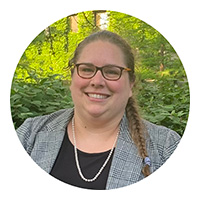
she/her/hers
Teaching Fellow in the Humanities 2022-2024
Ph.D., Classics (Program in the Ancient Mediterranean World), University of Chicago
jjohansen@uchicago.edu
Jordan Johansen (she/her/hers) received her PhD in Classics (Program in the Ancient Mediterranean World) from the University of Chicago in 2022. She is a scholar and teacher of ancient Mediterranean history, culture, and literature with a focus on Greco-Roman Egypt, gender and sexuality, environmental history, borders and cross-cultural interactions, papyrology, and classical reception. Her current book project Flooding Borders: Imagined Spaces between Egypt and Nubia in the Greco-Roman Period draws on a diverse range of evidence to re/de/construct the multiplicity of real and conceptual borders accumulated in the physical and imaginary spaces of the Nubian-Egyptian borderlands. In 2022-2023, she is teaching Gender and Sexuality in World Civilizations (Fall 2022), Intermediate Greek: Tragedy (Winter 2023), and Monstrous Women in Antiquity (Winter 2023). She received her BA in History, Anthropology, and Music with a minor in Human Rights from Southern Methodist University and studied classical languages at the University of Vermont and the University of Dallas.
Leland Jasperse 
he/him
Humanities Teaching Fellow 2023-2025
Ph.D., English, University of Chicago
ljasperse@uchicago.edu
Leland Jasperse received his PhD in English from the University of Chicago in 2023. Broadly, his research and teaching focus on the aesthetic mediation of historical shifts in embodiment and embodied norms, with particular attention to gender, sexuality, disability, and racialization. His current book project takes up fin-de-siècle texts that fail to achieve erotic and narrative drive in an historical moment that saw the compulsorization of sexuality. Emerging from this work is a second project examining how queer illness writing grapples with the paradox of aesthetically rendering anaesthetic experience (e.g. chronic fatigue, chemotherapy, losses of appetite and sex drive), complexly navigating, on the one hand, liberal visibility-oriented disability paradigms, and, on the other, queer theory's political and generic fetishization of limitless drives. He teaches in the Humanities Core (Media Aesthetics) and the Department of English.
Gary Kafer 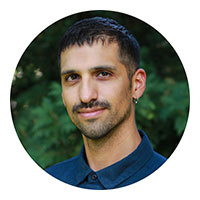
he/him/his
Humanities Teaching Fellow 2023-2025
Ph.D., Cinema and Media Studies, University of Chicago
gkafer@uchicago.edu
Gary Kafer is a digital media studies scholar that examines the politics of twenty-first century surveillance culture. He conducts research and teaching within digital media studies, science and technology studies, critical data studies, video game studies, and visual studies. Focused on surveillance systems, his work examines how digital technologies reproduce existing power relations through data-based processes. In particular, he brings into conversation critical data studies and theories of race, gender, and sexuality to explore how computational systems reinforce social inequities within broader regimes of capitalist, colonial, and imperial power. His first book project interrogates how the media concept of ubiquity glosses over the uneven ways in which state and corporate agents develop and use surveillance systems to distribute visibility and violence. His broader publications engage surveillance studies from the lens of queer theory. Gary received his PhD in Cinema and Media Studies from The University of Chicago in 2023.
Stephanie Kraver 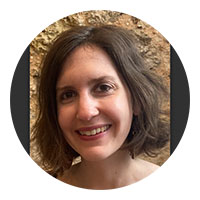
she/her/hers
Humanities Teaching Fellow 2023-2025
Ph.D., Near Eastern Languages and Civilizations, University of Chicago
skraver@uchicago.edu
Stephanie Kraver received her Ph.D. in Near Eastern Languages and Civilizations from the University of Chicago in 2023. She is a scholar of modern Arabic literature and Arabic and Hebrew poetry and poetics from the twentieth century to the present. Her research and teaching interests sit at the intersection of Palestinian/Israeli literature and film, gender and sexuality studies, trauma theory, and anticolonial theory. At the University of Chicago, she served as a doctoral fellow in the Pozen Center for Human Rights and an affiliated fellow in the Franke Institute for the Humanities. Her current book project identifies how poetic verse creates imaginative and political possibilities beyond the limits of ethno-national borders and separatist ideologies. The monograph tells the story of two poets: the celebrated Palestinian author Mahmoud Darwish and the renowned Israeli writer and peace activist Dahlia Ravikovitch. By tracing their relationship and poetry over the course of two decades, the project locates the hopeful potential of poetry amid everyday violence and the politics of poetic form.
Sarah McDaniel 
she/her/hers
Teaching Fellow in the Humanities 2023-2025
Ph.D., English, University of Chicago
sarahmcd@uchicago.edu
Sarah McDaniel received her PhD in English Language and Literature from the University of Chicago in 2023. Her research and teaching interests center upon Gender and Sexuality Studies, Queer Theory, and modern and contemporary LGBTQ+ life-writing, with a particular interest in correspondence. Her current book project, “Queer Correspondence: Epistolary Form and LGBTQ+ Life-Writing,” argues for “queer correspondence” both as a genre of queer life-writing operative across the long twentieth century and as an interpretive methodology. Her new projects explore parent-child epistolarity (through a study of contemporary published “open letters”) and queer “endurance” (in the context of queerness and sport).
Elliot Gordon Mercer 
he/him/his
ACLS Emerging Voices Fellow 2022-2024
Ph.D., Interdisciplinary Theatre and Drama, Northwestern University
elliotmercer@uchicago.edu
Elliot Gordon Mercer is an interdisciplinary artist, curator, and performance scholar. His research and creative practice investigate the intersections of dance and visual art, with an emphasis in postmodernism, feminist art, and queer theory. Working in drag and self-portraiture, he designs and constructs historical scenarios that are staged for the production of faux-documentary films and photographs. His fictitious archival images and their corresponding curatorial texts interweave scholarship and creativity, imagination and historical accuracy, in a process of queer storytelling. In 2021 his film "Sensorium" premiered at Frameline San Francisco International LGBTQ Film Festival. Mercer is also an authorized transmitter of Yvonne Rainer’s dance repertoire. He received a PhD in Interdisciplinary Theatre and Drama from Northwestern University and an MA in Performance Studies from New York University. Mercer is a Lucas Artists Fellow at the Montalvo Arts Center and a 2023 MacDowell Fellow in Visual Art.
Rivky Mondal 
she/her/hers
Humanities Teaching Fellow 2023-2025
Ph.D., English, University of Chicago
mondal@uchicago.edu
Rivky Mondal holds a PhD in English from the University of Chicago. She is a scholar of human interaction who examines how uncertainty manifests intra-socially in novels about modern encounters and relationships. Her first book is about 20th- and 21st-century novels which pay special attention to the “micro-social” dimensions of gender, race, and class, particularly the processes by which gesture, affect, and unspoken understanding scale out and in as signs of difference. Through readings of Henry James, Nella Larsen, and William Faulkner, as well as Sally Rooney and Raven Leilani, the project analyzes canny literary devices, and the ensuing interpretative issues, for registering “mean difference” — that is, the capacity of the “minor,” the contingent, and the petty to crystallize asymmetrical realities; and the challenge of securing meaning to difference’s latent and incoherent expressions. Rivky focuses on many of the same themes and problems in her teaching, and has offered a course on the feminist & queer historical avant-garde and practices of archival recovery, which was recognized with a Stuart Tave Course Design Award for innovative and inclusive teaching.
Cinta Pelejà 
she/her
Teaching Fellow in the Humanities, Department of Cinema and Media Studies and the College 2023-2025
Ph.D., Cinema and Media Studies, University of Chicago
cpeleja@uchicago.edu
Cinta Pelejà (she/her) is a film and media scholar and programmer. She received her PhD in Cinema and Media Studies from the University of Chicago in 2023. Her work takes an intersectional approach to documentary history, critical theory, and gender studies. Her first book project, “The Screen Encounter: Cinematic Experiences of the Self,” brings together a historically and geographically diverse archive of films to examine the phenomenon of seeing oneself onscreen. Her academic work has appeared in the journal Feminist Media Histories and the New Review of Film and Television Studies blog. Cinta has also worked as a curator and producer for Apordoc—Portuguese Documentary Association, and served as co-director of Doclisboa—International Film Festival.
Sharvari Sastry 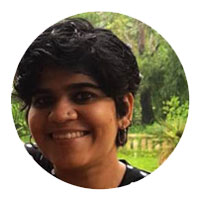
she/her
Harper Schmidt / Collegiate Assistant Professor 2022-2026
Ph.D., South Asian Languages and Civilizations & Theater and Performance Studies, University of Chicago
sharvarisastry@uchicago.edu
Sharvari is a Harper-Schmidt postdoctoral fellow, and teaches in the Arts Core in the College. Her research probes the unruly entanglements between live performance and recorded history, with a regional and discursive focus on South Asia. She is interested in tracing how gender, sexuality, and caste-based essentializations are articulated and historicized through performance. Her book project, Performances of Posterity: Theater, Archives and Cultural Regulation in Modern India excavates processes of cultural preservation and appropriation with respect to minoritarian performance cultures in the Maharashtra region, specifically tamasha and lavani, and tracks how these forms come to be denigrated, censored, reformed, reclaimed, and reinvented in accordance with prevailing political and social aspirations. She is currently working on a critical-creative project about the telephone – exploring how the telephone’s technological, sociopolitical and performative history constellates questions of gender and sexuality, in the Indian subcontinent and beyond.
Aurore Spiers 
she/her/hers
Humanities Teaching Fellow 2022–2024
Ph.D., Cinema and Media Studies, University of Chicago
aspiers@uchicago.edu
Aurore Spiers (she/her) is a historian of film and media, primarily from Europe and the United States. She received her PhD in Cinema and Media Studies from The University of Chicago in 2022. Mainly focused on women’s contributions to cinema, her work interrogates historiographical processes—what history gets written, how, and why—through the lens of gender and intersectional feminism. It asks why women (and other marginalized groups) have so often been forgotten, and what strategies—critical, creative, speculative, etc.—may be employed against historical erasure. Her first book project, based on research from her doctoral thesis, studies women’s labor in French film archives from the 1920s through the 1970s. Her writing, on topics ranging from the reception of The Birth of a Nation (1915) in France to the rediscovery of Alice Guy Blaché within the context of the Women’s Liberation Movement, has appeared in 1895: Mille huit cent quatre-vingt-quinze and Feminist Media Histories. She is also a contributing editor and country coordinator (France) to the Women Film Pioneers Project.
Social Sciences
Rafadi Hakim 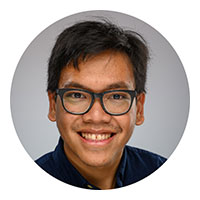
he/him/his
Teaching Fellow in Anthropology and the College 2023-2025
Ph.D., Anthropology, University of Chicago
hakimf@uchicago.edu
Rafadi Hakim is a linguistic and sociocultural anthropologist whose research examines how gender, kinship, and religion emerge as relational categories through uses of language in everyday social interaction. His current book project, Togetherness: Language, Relationality, and the Politics of Exchange, is based on ethnographic fieldwork among Protestant church congregations and women’s co-operative credit associations in Kupang, eastern Indonesia. His second project, based in the United States, investigates how queer forms of kinship are enacted through storytelling practices.
Michelle Johns 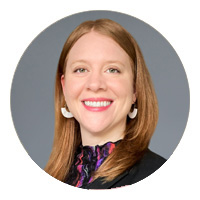
she/her/hers
Senior Research Scientist, Academic Research Centers, NORC
Ph.D., Health Behavior and Health Education, University of Michigan, Ann Arbor
johns-michelle@norc.org
Michelle M. Johns is a Senior Research Scientist in the Academic Research Centers of NORC at University of Chicago. Dr. Johns' work focuses on how stigma and resilience shape the lives of LGBTQ+ communities, and her research employs qualitative and quantitative methodologies to assess critical questions about LGBTQ+ identities and experiences of minority stress, violence victimization, mental health, and sexual health over the life course. Dr. Johns has worked in multiple institutional settings and across sectors, including the CDC Division of Adolescent and School Health, the Center for Sexuality and Health Disparities at the University of Michigan, and Howard Brown Health Center--a non-profit health organization serving Chicago’s LGBTQ+ community. Dr. Johns holds an MPH and PhD in Health Behavior and Health Education and a Certificate in Women’s Studies from the University of Michigan.
keywords: LGBTQ Health, Stigma, Resilience, Health Equity
Jeffrey Lockhart 
he/they
James S. McDonnell Postdoctoral Fellow 2022-2024
Ph.D., Sociology, University of Michigan
jlockhart@uchicago.edu
Lockhart is a James S. McDonnell Postdoctoral Fellow in the Department of Sociology and the Knowledge Lab. He is also an Associate at Harvard University's GenderSci Lab. Lockhart received a PhD in Sociology from the University of Michigan, and an MPhil in Multi-Disciplinary Gender Studies from the University of Cambridge. His research interests include the scientific and technical construction of sex and sexual difference.
keywords: sex; gender; sexuality; science and technology studies; sociology of knowledge; computational social science
Tasneem M Mandviwala 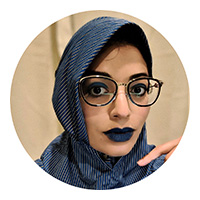
she/they
Postdoctoral Scholar 2022-2024
Ph.D., Comparative Human Development, University of Chicago
tasneem@uchicago.edu
Tasneem M. Mandviwala is a cultural and developmental psychologist, intersectional feminist, artist, and activist educator focusing on the identity development and experiential knowledges of marginalized communities in the US. She holds a PhD in comparative human development (University of Chicago) and an MA in English literature (University of Houston). Her work includes a forthcoming book titled South Asian American Stories of Self: The Dis-United States of Muslim Womanhood (Springer 2022), The Invisibility of Power: A Cultural Ecology of Development in the Contemporary U.S.(2021; coauthored with M. B. Spencer and J. Hall), and various community outreach pieces on AltMuslimah.com and Amaliah.com. She is currently a postdoctoral researcher at the Urban Resiliency Initiative (University of Chicago) examining the relationships between male youth of color and law enforcement officers. She also serves as the Advisory Council Coordinator for Silk Road Rising’s think and create tank, Polycultural Institute in Chicago, IL.
Paula Martin 
she/they
Teaching Fellow in Comparative Human Development and the College 2022-2024
Ph.D., Comparative Human Development, University of Chicago
paulam@uchicago.edu
Paula is a qualitative social scientist working in the fields of medical anthropology and sociology, gender studies, youth studies, and feminist science and technology studies. She holds a PhD from the Department of Comparative Human Development and a MA from the Crown Family School of Social Work, Policy, and Practice. Her dissertation, "Practicing Gender", examined the interlocking logics of time, gender, and evidence that shape the provision of gender affirming care to young people in the United States. Based in clinical ethnographic observation, her work follows providers and young people as they use the tools of medical and scientific practice to craft livable worlds and envision more liberatory ones. The dissertation considers the specific use of early interventions into gender, such as puberty-suppressing medications and gender-affirming hormones, while also examining clinical research efforts attempting to articulate the impact of those interventions.
Agnes Mondragón-Celis 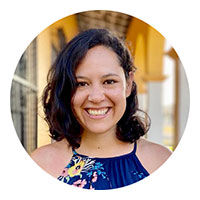
she/her
Teaching Fellow 2022-2024
Ph.D., Anthropology, University of Chicago
agnesmondragon@uchicago.edu
My research explores the forms of knowledge production and circulation that emerge in contexts of generalized violence and opacity, analyzing how they are constitutive of political authority. My first book project, Mediations of War: Statehood, Criminality, and the Politics of Knowledge in Mexico explores the highly mediated ways in which Mexicans engage with the “war on drug trafficking”—the state’s combat of drug trafficking organizations and the ensuing explosion of violence nationwide. My second book project explores the gendered dimension of such violence and the feminist forms of struggle it has galvanized. Titled Femininity and Drug War Violence in Mexico: The Wounded Body and the Politics of Visibility, this project analyzes the pedagogical practices, street-level protests, and debates among feminist journalists and activists that shape Mexico’s current feminist mobilization, focusing on how feminist political action targets and upends the semiotic dimension of gender-based violence.
Corbin Page 
he/him/his
Teaching Fellow in the Social Sciences 2023-2025
Ph.D., History, University of Chicago
corbinp@uchicago.edu
Corbin Page is a postdoctoral Teaching Fellow in the Social Sciences collegiate division. He studies legal history, the history of criminal law, civil detention, and the human sciences. His scholarship weaves together legal, intellectual, and carceral history to examine how states and the national government categorized, regulated, and punished perceived sexual deviation and danger throughout the twentieth century.
Stephanie Painter 
She/Her/Hers
Teaching Fellow in History 2023-2025
Ph.D., History, University of Chicago
stephanie3@uchicago.edu
I am a scholar who writes about the remarkable lives of non-elite women in early modern Chinese history. My scholarship reclaims violence as an instrument of women’s power. Turning to the extraordinary to unlock new possibilities for our understanding of the everyday, my book project entitled, What She Had, What She Wanted: Women’s Defiance in Late Imperial China, explores the testimonies of 152 women sentenced to death for killing their husbands. The impressions that these “female criminals (fanfu 犯婦)” left on the archive move us beyond an image of women as collaborators in the reproduction of strong patriarchies, making it possible to see the diversity of ways women pushed against and broke through this gender system, and has allowed me to argue that we have underestimated the role of ordinary women’s expansive emotional, material, and working lives in shaping traditional Chinese society.
Virginia Rangos 
she/her
Teaching Fellow in the Social Sciences 2022-2024
Ph.D., Sociology, University of Chicago
vrangos@uchicago.edu
Virginia Rangos is a sociologist specializing in medicine, mental and neurological health, gender, sexuality, and qualitative methods. She received her PhD in Sociology from the University of Chicago in 2022, and she was awarded a Dean’s Dissertation Completion Fellowship. She also attended the University of Chicago for her BA in Comparative Human Development and Gender Studies. Her book manuscript (Injury to the Brain, Assault on the Self: Identity Re-Construction in the Aftermath of Stroke and Traumatic Brain Injury) examines what happens when damage to the brain causes change in what is commonly understood to be the mind or even the Self and how patients’ priorities, plans, and self-perceptions shift, as they proceed through the stages of neuro-rehabilitation. It delves into the myriad ways damage to the brain impacts aspects of identity and how patients find ways to preserve their sense of Self and/or adapt and find meaning in new versions of the Self.
Zoya Sameen 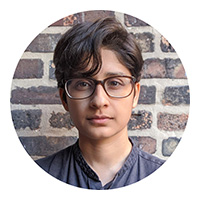
she/her/hers
Teaching Fellow in the Social Sciences 2022-2024
Ph.D., History, University of Chicago
zsameen@uchicago.edu
Zoya is a historian of gender, law, and empire in nineteenth- and twentieth-century South Asia. Her current book project The Scatter of Empire: Prostitution, Law, and Trouble in Colonial India examines how legislative interventions into prostitution such as regulatory laws, cantonment codes, municipal rules, and border regimes were circumvented and challenged by the Indian and European women they targeted. Pushing against established histories of colonialism, gender, and sexuality in India that have focused on governmental mandates with respect to legislation and codification, her project foregrounds notions of trouble and disruption to present a new reading of colonial interventions into sexuality as they unfolded on the scattered ground of empire. Zoya's research interests also include understanding gender history at the intersection of law, technology, and environment, as well as digitally mapping women's mobility across borders and regions.
Connor Strobel 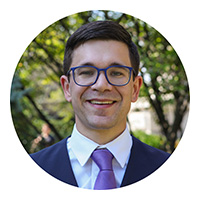
he/him/his
Harper-Schmidt Fellow in the Society of Fellows 2022-2026
Ph.D., Sociology, University of California, Irvine
strobel@uchicago.edu
Professor Connor "Noor" Strobel is a Harper-Schmidt Fellow in the Society of Fellows and Collegiate Assistant Professor in the College, here, at the University of Chicago. A sociologist by training, his research is generally interested in contested identities --- how our identities become sources of personal and group conflict. He is an internationally recognized expert on the social dynamics of eating disorders and has written widely on other topics including the politics of deviance, debates within Islam feminism, and the rules of speech on social media platforms. Professor Strobel’s first co-authored book titled The Politics of “Perverts”: The Political Attitudes and Actions of Non-traditional Sexual Minorities is forthcoming with NYU Press. His work has been published or is forthcoming in journals such as Gender Issues, The International Journal of Environmental Science and Public Health, and Sociology Compass. Professor Strobel’s research and student advocacy has been covered by the media outlets such as the LA Times, New York Times, PBS Newshour, San Francisco Chronicle, and the Eating Disorder Association of Ireland.
keywords: Gender; Eating Disorders; Politics and Sexuality; Digital Methods; Islamic Feminism
Thuto Thipe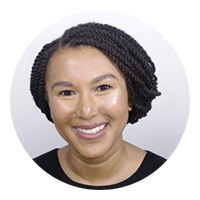
she/her/hers
Postdoctoral Scholar in the Department of History
Transitions to Assistant Professor 2024-2025
Ph.D., History and African American Studies, Yale University
tthipe@uchicago.edu
Thuto Thipe’s research focuses on social and legal history of 19th and 20th century South Africa. She is interested in how changing conceptualisations of, rights to, and uses of land both shape and reflect different imaginings and meanings of race, gender, citizenship, and class. Her manuscript in progress, Black Freehold: Landownership in Alexandra Township, tells the story of the history of land ownership in Alexandra Township, near Johannesburg, from its founding in 1912 to 1979.The disruption that black people’s freehold land ownership in Alexandra caused to white supremacist order drove the South African state to invest enormous financial resources and political capital in dismantling black freehold rights, physically demolishing large parts of the Township, and forcibly moving tens of thousands of people from Alexandra in efforts to destroy the social, political and economic realities that residents produced under freehold.